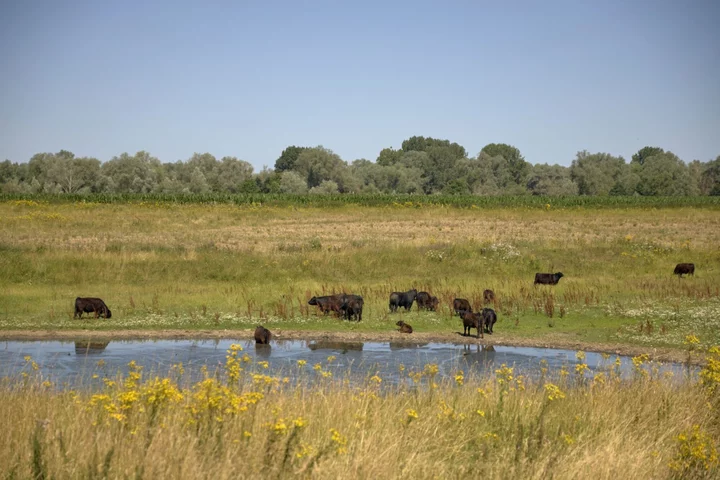Deutsche Bank AG said it set up a panel to help it assess nature-related risks and identify new financial product offerings tied to the challenge of reversing biodiversity loss.
The group is made up of executives from the German bank and members of external organizations, including the United Nations, World Wide Fund for Nature and the Nature Conservancy. The bank said the goal is to improve its understanding of nature-related risks; integrate those risks into its processes; and offer nature-based financing and investment products to global clients.
“The first step will be defining nature and its relation to the economy and its sectors in more detail, quantifying it with metrics, and then forming policies” for the bank’s activities around those findings, said Markus Müller, chief investment officer ESG of the private bank run by Deutsche Bank.
Biodiversity is declining at an unprecedented rate, and more financial institutions are getting involved. Last month, investors overseeing $23.6 trillion of funds launched a campaign to pressure 100 companies to ramp up efforts to preserve land and marine habitats.
Banks invest in and lend to real-economy players, such as food, paper and pharmaceutical companies, that rely heavily on natural resources for their day-to-day operations. As losses accelerate — ranging from falling fish stocks to shrinking rainforests — they pose a threat to companies and the financial institutions that back them.
“The majority of our current economic activity is harmful to nature,” said Jessica Smith, nature lead of the UN Environment Program Finance Initiative and a member of Deutsche Bank’s nature advisory panel. “Only a handful of banks are waking up” to the issue, she said in an interview.
It’s especially challenging for a global player like Deutsche Bank, which needs to quantify and address nature risk across corporate, private and investment banking operations, as well as its asset management business. A key hurdle is the lack of reliable data.
“Nature is very local and human activity is very local as well,” said Müller, co-chair of the Deutsche Bank panel, in an interview. “We need to map this.”
A recent study valued nature markets at almost $10 trillion per year, equivalent to 11% of global GDP. Deutsche Bank said it would consider opportunities such as investing in nature-related startups or participating in debt-for-nature swaps.
The swaps are deals typically arranged by banks that allow countries to cancel some of their foreign debt in exchange for protecting specific natural resources. The German bank hasn’t been involved in the market so far. “It’s one area that could be strengthened through the nature panel,” said Müller.
Other external members of the panel include Ocean Risk and Resilience Action Alliance, Mercator Ocean International, Nature Markets, Senckenberg Society for Nature Research and the University of Cambridge. Deutsche Bank said the panel will initially meet on a bi-monthly basis and switch to quarterly meetings beginning in mid-2024.

